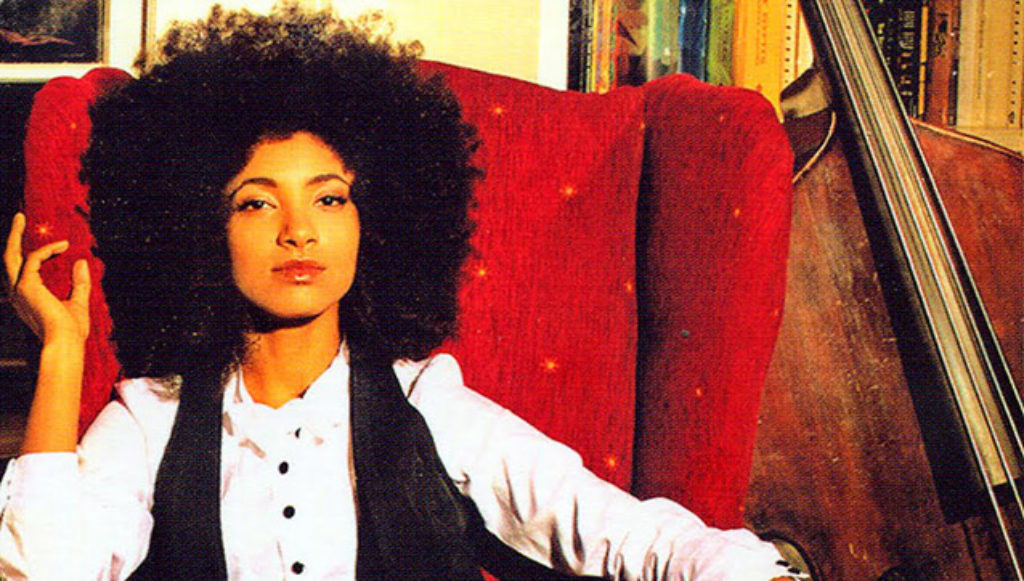
Who is Esperanza Spalding, and what is she doing with Justin Bieber’s Grammy?
That’s a question lots of people (many of them under the age of 16) asked in the wake of the Feb. 13, 2011, Grammy Awards, when the heretofore obscure jazz artist upset Bieber (and Drake) to take home one of the music industry’s most prestigious awards.
Who is this daring young woman?
Spalding was raised by her mother in a rough neighborhood of Portland, Ore., and showed musical talent early on. She began playing violin when she was 5, then went on to dabble with other instruments until she found her true musical love, the bass, at age 15. She eventually entered the prestigious Berklee College of Music in Boston.
Her debut album, Junjo, arrived in 2006. In 2009, she performed at the Nobel Peace Prize ceremonies at the request of that year’s recipient. And in 2010, she was asked to perform at a Prince tribute concert, to be televised on BET.
For Spalding, that latter concert marked a crossroads. Long a fan of Alicia Keys, she mulled how to make her BET performance a career-making turn. But after working with some of the other artists on the docket, she changed her mind. “Every person looked like a California raisin—this incredibly delicious, tasty, captivating artist, who has a magnificent magnetism and a unique flavor about what they do and who they are, but all of that has just been sucked out in every direction,” she told the Associated Press. “The industry has surrounded them with all of these superficial pyrotechnics and I think it’s really sucked the life out of their creative spirit, and I find that really sad.”
Here, then, is what Spalding doesn’t deem to be superficial pyrotechnics:
Of the 11 tracks on Chamber Music Society, only five have lyrics. “Apple Blossom” offers the album’s most straightforward narrative. A duet with Brazilian singer/songwriter Milton Nascimento, it focuses on an “aging man” who is mourning the loss and celebrating the life of his deceased wife (or perhaps lifelong partner). We learn that the man and woman had hoped to start a family: “In summer they would dream/Of being three and smile.” But before “the seed could bloom/She wilted from the chill/And all fell cold and still.”
The story ruminates on the mysterious connections between body, soul and the hereafter: “As he opened the earth to receive her/He prayed heaven would be waiting to meet her,” we’re told. Then he planted “a seed/From their favorite tree,” and now he spends time under its branches even as she looks down on him. (“And from above she’s always watching/But her body lies ‘neath the apple blossoms.”)
Spalding toys with big ideas on “Little Fly,” a musical rendition of William Blake’s 1793 poem of the same name: “Little fly/Thy summer’s play/My thoughtless hand/Has brushed away/ … Am not I/A fly like thee?/Or art not thou/A man like me?” The song reflects on life, fate and God, affirming that whatever lies ahead, life is to be lived to its fullest.
On the ballad “Winter Sun,” Spalding welcomes the warmth that sunshine brings to a cold season. “I know soon/You’ll come tame the whip of the wind/And bathe the naked branches with warmth and light.” But it’s also possible to read a deeper meaning to the lyrics that follow, as Spalding could be singing about waiting for a special someone to walk into her life, or perhaps even be expressing hope and faith in God: “One kiss of your warmth/Heals the soul/Shine winter sun/Make this cold heart whole.”
“Wild Is the Wind” perhaps longs for a passion that’s not passing. “Give me more than one chorus,” Spalding asks.
Mildly suggestive sensuality creeps into “Wild Is the Wind” as Spalding coos, “Like a leaf clings to a tree/So my darling cling to me/Let my love flow through you/Wild as the wind.”
Bieber’s legions likely would’ve lashed out at anyone who “stole” the Grammy from their pop idol. But the contrast between his music and Spalding’s is indeed striking. While the mop-topped teen warbles tightly-constructed pop tunes about teenage love, Spalding’s jazz is free form and luxurious, poetic and wild.
Jazz, even in its heyday, has never been music for the masses. It’s a road less traveled, and its practitioners rarely find the fortune and fame that the Biebers of the world do. You can’t dance to “Wild Is the Wind.” You can’t bang your head to “Little Fly.” Esperanza Spalding’s Grammy-winning offering, then, represents a different sort of music altogether, full of paradox and wonder mixed with occasional hints of chaos and sensory (if not sensual) delight.


Paul Asay has been part of the Plugged In staff since 2007, watching and reviewing roughly 15 quintillion movies and television shows. He’s written for a number of other publications, too, including Time, The Washington Post and Christianity Today. The author of several books, Paul loves to find spirituality in unexpected places, including popular entertainment, and he loves all things superhero. His vices include James Bond films, Mountain Dew and terrible B-grade movies. He’s married, has two children and a neurotic dog, runs marathons on occasion and hopes to someday own his own tuxedo. Feel free to follow him on Twitter @AsayPaul.